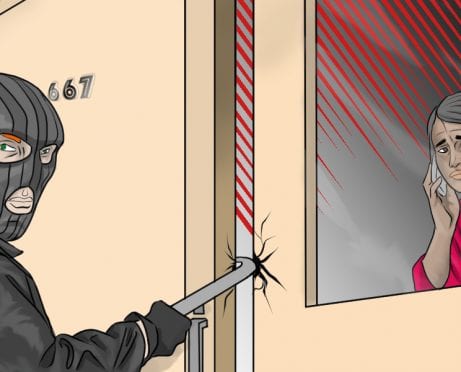
Evan Sachs
Buying a home is a major milestone in anyone’s financial journey. It’s also a vital part of our economy. When home builders build homes, real estate agents earn sales commissions, homebuyers renovate homes, and homebuying services such as title insurance companies work on a real estate transaction, the economy benefits.
I believe there's a strong case for buying a home if the numbers make sense. That said, too many people treat it like buying a car. They buy what they want at the time and don’t do enough research for one of the largest purchases of their lives.
People also don’t think ahead more than a few years. This can result in their having to sell their home shortly after they bought it.
I live in a newer neighborhood, and I’ve seen many people put their homes on the market just two or three years after they were built.
Selling a home is an expensive proposition. And it's a difficult one, too. (Though if you're struggling, some companies like zBuyer's Fast Cash 4 Homes can help.) If, like many Americans, you upgrade to a bigger or fancier home with a new 30-year mortgage, you’ll end up destroying your future wealth potential.
Here’s how buying a new home every few years can be crazy expensive, and how to find a home that will last you for years to come instead.
Upgrading Your Home Every Few Years Will Destroy Your Wealth
When you buy the wrong home, you eventually end up selling it to buy a different one. The major expense most people face when selling a home is the real estate agent's commission. It's usually around six percent of the selling price. On a $200,000 home, that’s $12,000, or $24,000 on a $400,000 home. We’re talking major money.
Buying a home is expensive, too. Closing costs vary from state to state, but you’ll likely have to pay fees related to the mortgage, application, appraisal, attorneys, closing, credit report, home inspection, title insurance, points on your loan, transfer taxes, and more. These can quickly add up to thousands of dollars and add no value to your new home.
Mortgage Mistakes
Another expensive mistake many frequent homebuyers make is to start with a new 30-year mortgage each time they buy a new home. This is an even bigger mistake if you’re upgrading to a more expensive home. Here’s why.
Let’s say you take out a traditional 30-year mortgage and stay in the home for five years. Over that period, you’ve paid off only 8.8 percent of your mortgage balance as your initial mortgage payments consist primarily of interest.
The numbers get better the longer you own a home because more and more of each monthly payment goes toward principal. After 10 years, you’ll have paid off 19.9 percent of your initial balance. After 15 years, it’s 33.8 percent. It takes 20 years to get to 51.1 percent.
The problem is, if your next home is more expensive, you’re going to have to put more money down to stick with the traditional 20 percent down payment. If you only ever put 20 percent down on your next home and you move again in another five years, you aren’t making much progress on paying off the home or building's equity. You only pay off 8.8 percent of the mortgage balance. Then you reset the clock with an even bigger mortgage.
Adding It All Up
So let’s recap on why buying the wrong home is devastating to your finances.
After you figure out you bought the wrong home, you have to sell the home you’re in and pay real estate commissions of six percent. Because you weren’t in the home long, you’ve paid off only 8.8 percent or less of your mortgage. Now that you’re upgrading, you have to put even more money down to keep the same 20 percent down payment.
Finally, once you buy the new home, you’ve paid thousands in closing costs yet again.
So what’s the alternative? Thinking ahead, planning, and buying the right home the first time. Here’s how to guard against buying the wrong home and easily save tens of thousands of dollars.
How to Find the Right House the First Time
To buy the right home the first time, you’ll need to do a ton of research. Research the neighborhood you’re buying in. Is the neighborhood going downhill or is it getting better? Is crime a problem?
 Drive through it at different times throughout the day and week to make sure you’ll feel comfortable living there. Get out of your car and walk around.
Drive through it at different times throughout the day and week to make sure you’ll feel comfortable living there. Get out of your car and walk around.
Research what the land around your prospective neighborhood is zoned for. Look for anything that may make you want to move and make sure it can’t happen near your new home. This is one of the biggest purchases of your life, so you should easily devote many days or weeks to finding the right home.
Next, once you’ve found the right home, stay there for at least 10 years. The longer you stay, the more mortgage principal you are paying off, which means you’re building wealth through home equity.
Finally, once you’re ready to move, commit to taking out a shorter mortgage — ideally one equal to the time remaining on your current mortgage. For instance, if you originally had a 30-year mortgage and want to move after 15 years, you’d take out a 15-year mortgage to purchase your new home. This means you’ll eventually be completely debt free and helps keep the cost of your new home in check.
If you can’t afford a mortgage term equal to the remaining term on your current mortgage, you’re essentially taking on extra years of debt to pay for a new home. Unless you’re young, that could leave you with a mortgage balance after you retire. This, in turn, could severely limit your retirement options.
Final Thoughts on How to Find a House
Most people spend a lot of time focusing on the finishes of a home and the paint color on the walls, but don’t pay attention to the bigger factors like if the home will still work for them in 10 or 15 years.
Shifting your mindset to allow yourself to buy the right long-term home can help you become wealthier by avoiding tens of thousands of dollars in transactional costs each time you move.









